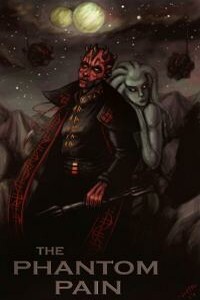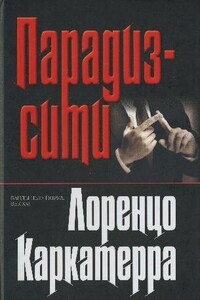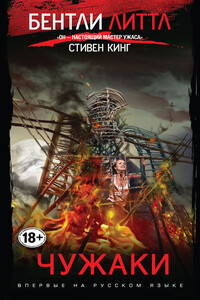Spider in the Corner of the Room - [11]
Dr Andersson pauses then deflates the pressure valve and unstraps the band. ‘Your blood pressure is slightly high.’
I rub my arm were the strap has been. What is happening to my body?
Dr Andersson folds the monitor kit and sets it on a table to her left. ‘Do you have a headache?’
‘Yes.’
‘Front or b-’
‘Front.’
‘Light-headedness?’
I nod.
She picks up a notepad and pen. ‘Dizziness?’
I swallow. ‘All the symptoms of anxiety. Yes.’
I don’t want to believe it, but it has to be true. My high blood pressure means I am stressed. In here, in this prison. Anxiety. Worry. Trauma. None of them are good for me. But I do not know what to do, don’t know how to handle the feelings, how to curb them from taking over.
As Dr Andersson writes something down, I distract my thoughts by scanning the room. Boxes sit unpacked in the corner, medical books teeter, stacked next to her desk. There are no personal pictures on her table, no certificates on the wall.
‘Maria? Are you okay?’
I look down at myself. I am rocking. I had not even realised.
‘Here. Drink some water.’ She holds out a plastic cup.
I take it and sip. The water cools my throat.
‘So, do you want to tell me what happened in there, in the segregation cell?’
‘You already know. I had a panic attack.’ I put the cup on the desk, my heart rate rising again. Maybe if I change the subject. ‘You said in the cell that you are a psychiatrist.’
‘Oh, right, yes. That’s correct. I studied medicine at the University of Stockholm then specialised in psychiatry at King’s College, London.’
‘In what year did you qualify?’
She breathes out. ‘Look, Maria, I would love to give you details on my entire professional history, but to be frank-’
‘But I need you to tell me,’ I say, my voice rising. ‘It helps me to focus. The details, facts, they-’
‘But to be frank,’ she continues, louder, as if I hadn’t spoken, ‘that’s not what we’re here for. We are here to talk about you. To help you. You just had a major panic attack back there. Your blood pressure is up. You are experiencing classic symptoms of anxiety. So why don’t you let me help to calm you down, see how you are and guide you through all this, hmmm?’
‘Are you Swedish?’
She shakes her head. ‘Sorry?’
‘Your name. Andersson. It is Swedish.’
A sigh. ‘Look, Maria, can we-’
‘Lauren is a French name meaning “crowned with laurel”,’ I say at speed, desperate to cling on to any detail I can. ‘It has a Latin root that means “bay” or “laurel plant”. Lauren is the feminine form of the male name Laurence. In 1945, the name Lauren appeared for the first time in the top one thousand baby names in the United States.’
Dr Andersson stares at me. ‘Maria,’ she says after a moment, ‘have you ever talked to anyone about your Asperger’s?’
‘Why do you ask?’
She reaches to her desk and opens a file. My name is on the cover. ‘Your father,’ she says, opening the folder. ‘He died when you were ten. Correct?’
That stops me immediately. I swallow, nod.
‘How?’
‘Why do you want to know?’
She smiles. ‘Because I am your therapist here. And I need to know.’
I dart my eyes around the room. ‘You are new?’
‘Yes.’
My gaze settles on the half-open boxes. I pick out Dr Andersson’s name scrawled in black ink on the side and concentrate on it, so that when I speak about him, when the pain of the memory hits, it won’t be as hard. ‘It was a car accident in Spain,’ I say, eyes dead ahead. ‘Papa died in a car accident. He was returning from work. He was a prosecution lawyer.’
‘Maria, can you look at me?’
‘No.’ I am scared to. If I make eye contact, I may scream.
‘Okay. Okay.’ A quick clear of the throat. ‘Do you miss him, your father?”
I pull at a strand of hair by my ear. ‘Yes. Of course.’
She notes something down. ‘And how are you coping so far in prison with your Asperger’s?’
At this, I divert my attention to Dr Andersson’s watch. It is a TAG Heuer, loud tick. I can hear it in my head louder than I should. ‘My brain is making faster connections here.’ I stop. Everything is faster in this prison, in my head. I feel my arm where the blood pressure monitor squeezed my veins. The anxiety, the trauma-they must be the causes, the reasons why I feel different here. My head and my body are responding, trying to protect me. I think. The speed at which I could read the prison rules, suddenly recalling the algorithm in the segregation cell- it was all quicker, clearer. I have to write it down. Now. ‘I need a notepad and pen.’
‘Why?’
I pause. How do I describe it to her? How do I tell her that codes, numbers, data simply enter my head, procedures on how to complete tasks sauntering into my brain as if they own it. ‘I like to write information down, that is all.’
She suddenly sits forward. ‘Is that your Asperger’s?’ But before I can even reply, she is talking again. ‘You said your brain is making faster connections here.’
I clear my throat. ‘Yes.’
‘And is that normal?’
‘No.’
‘Can you tell me about it?’ When I do not respond, she says, ‘I can get you that notepad and pen.’
I look at her. Is she sincere? Is she on my side? I need that writing book, need to get this information out, like an itch that needs scratching. What choice, right now, do I have? I scan the room. There is a laptop on her desk. I stand and, leaning forward, pick it up.

Алина совсем ничего не знала про своего деда. Одинокий, жил в деревне, в крепком двухэтажном доме. На похоронах кто-то нехорошо высказался о нем, но люди даже не возмутились. После похорон Алина решила ненадолго остаться здесь, тем более что сын Максимка быстро подружился с соседским мальчишкой. Черт, лучше бы она сразу уехала из этой проклятой деревни! В ту ночь, в сырых сумерках, сын нашел дедов альбом с рисунками. Алина потом рассмотрела его, и сердце ее заледенело от ужаса. Зачем дед рисовал этот ужас?!! У нее еще было время, чтобы разглядеть нависшую угрозу и понять: обнаружив ночью альбом с рисунками, она перешагнула черту, за которой начинается территория, полная мерзких откровений.

В книге рассказывается история главного героя, который сталкивается с различными проблемами и препятствиями на протяжении всего своего путешествия. По пути он встречает множество второстепенных персонажей, которые играют важные роли в истории. Благодаря опыту главного героя книга исследует такие темы, как любовь, потеря, надежда и стойкость. По мере того, как главный герой преодолевает свои трудности, он усваивает ценные уроки жизни и растет как личность.

Пока маньяк-убийца держит в страхе весь город, а полиция не может его поймать, правосудие начинают вершить призраки жертв…

Любовь и ненависть, дружба и предательство, боль и ярость – сквозь призму взгляда Артура Давыдова, ученика 9-го «А» трудной 75-й школы. Все ли смогут пройти ужасы взросления? Сколько продержится новая училка?

Вот уже почти двадцать лет Джанкарло Ло Манто — полицейский из Неаполя — личный враг мафиозной семьи Росси. Он нанес ей миллионный ущерб, не раз уходил от наемных убийц и, словно заговоренный, не боясь смерти, снова бросался в бой. Потому что его война с мафией — это не просто служебный долг, это возмездие за убийство отца, друзей, всех тех, кто не захотел покориться и жить по законам преступного мира. Теперь Ло Манто предстоит вернуться в Нью-Йорк, город его детства, город его памяти, для последнего решающего поединка.

Во время разгульного отдыха на знаменитом фестивале в пустыне «Горящий человек» у Гэри пропала девушка. Будто ее никогда и не существовало: исчезли все профили в социальных сетях и все офи-циальные записи, родительский дом абсолютно пуст. Единственной зацепкой становятся странные артефакты – свитки с молитвами о защите от неких Чужаков. Когда пораженного содержанием свитков парня похищают неизвестные, он решает, что это Чужаки пришли за ним. Но ему предстоит сделать страшное открытие: Чужак – он сам…